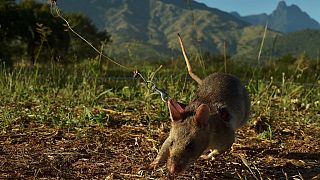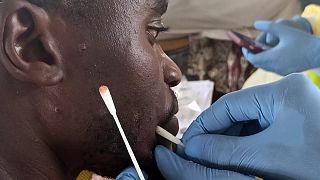Ghana
Two cases of the Marburg virus disease, a hemorrhagic fever almost as deadly as Ebola, have been recorded in Ghana, the first ever in the country, health authorities announced Sunday.
On July 8, blood samples from two people in the southern Ashanti region suggested the Marburg virus and the samples had been sent to the Pasteur Institute in Dakar (IDP) for confirmation, the Ghana Health Service (GHS) had said.
"Additional testing at the IDP in Senegal has confirmed the results," Dr. Patrick Kuma-Aboagye, director-general of the GHS, said in a statement Sunday.
"This is the first time that Ghana has confirmed (the presence of) the Marburg virus," he said.
The 98 people identified as contact cases are currently under quarantine, the statement added, noting that no other Marburg cases have been detected among them so far.
Health authorities say they are doing everything possible to "protect the health of the population", calling for the cooperation of "all" to ensure that the virus is "effectively contained".
The Marburg virus disease is transmitted to humans by fruit bats and is spread in humans through direct contact with the body fluids of infected people, or with surfaces and materials, according to the World Health Organization (WHO).
WHO announced in September 2021 the end of the first episode of Marburg virus in West Africa, 42 days after the identification of a single case in Guinea.
Sporadic outbreaks and cases had previously been reported elsewhere in Africa, including Angola, Kenya, Uganda, South Africa, and the Democratic Republic of Congo.
The onset of the disease is sudden, with high fever, severe headache, and eventual malaise. Case fatality rates have ranged from 24% to 88% in previous outbreaks, depending on the virus strain and case management, according to WHO.
Although there are no approved vaccines or antiviral treatments for the virus, oral or intravenous rehydration and treatment of specific symptoms improve survival rates.












Go to video
Evacuations begin: African citizens caught in Israel-Iran crossfire
Go to video
Ghana's former finance minister place on Interpol Red Notice list over corruption allegations
02:10
Accra city authorities renew battle against roadside trading
Go to video
Ghana moderators sue Meta over harm from reviewing extreme content
01:13
Uganda declares end to Ebola outbreak
Go to video
Ghanaian Catholics gather for requiem mass in Accra in honour of Pope Francis